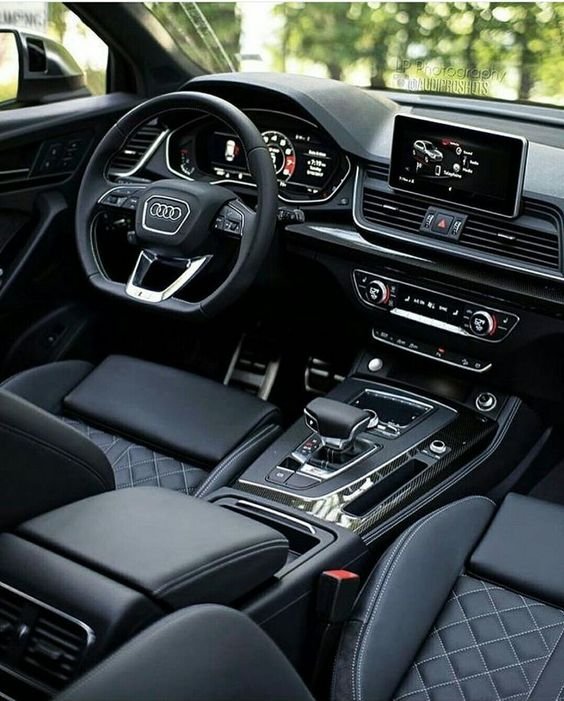
Choosing the best car warranty is an important decision that can provide peace of mind and financial protection against unexpected repair costs. A car warranty, whether provided by the manufacturer or purchased as an extended warranty, covers the cost of repairs and maintenance for your vehicle within a specified period or mileage limit. To ensure you select the right warranty for your needs, it’s essential to understand the types of warranties available, the coverage they offer, and the factors to consider when making your decision.
Understand the Types of Car Warranties
Manufacturer’s Warranty
A manufacturer’s warranty, also known as a factory warranty, is included with the purchase of a new vehicle. This warranty is typically divided into several components:
– Bumper-to-Bumper Warranty: This covers almost all components of the vehicle, including electrical systems, air conditioning, and infotainment systems. It generally excludes wear-and-tear items like brake pads, tires, and wiper blades. The coverage period usually ranges from 3 to 5 years or 36,000 to 60,000 miles, whichever comes first.
– Powertrain Warranty: This covers the vehicle’s engine, transmission, and drivetrain components. The powertrain warranty often lasts longer than the bumper-to-bumper warranty, typically ranging from 5 to 10 years or 60,000 to 100,000 miles.
– Corrosion or Rust Warranty: This warranty covers the cost of repairing or replacing parts damaged by rust. The coverage period can vary significantly, ranging from 5 years to the lifetime of the vehicle.
– Roadside Assistance: Some manufacturer warranties include roadside assistance, covering services like towing, flat tire changes, and lockout assistance for a specified period.
Extended Warranty
An extended warranty, also known as a vehicle service contract, can be purchased separately from the manufacturer, dealership, or a third-party provider. Extended warranties extend coverage beyond the original manufacturer’s warranty, often including additional services or longer coverage periods. Extended warranties typically cover:
– Comprehensive Plans: These offer coverage similar to a bumper-to-bumper warranty, including most major components of the vehicle.
– Powertrain Plans: These focus on the engine, transmission, and drivetrain, similar to the manufacturer’s powertrain warranty.
– Component-Specific Plans: These may cover specific systems, such as electronics, air conditioning, or hybrid components.
Consider Your Vehicle’s Age and Mileage
The age and mileage of your vehicle play a crucial role in determining the type of warranty you should consider. New cars come with a manufacturer’s warranty, so an extended warranty may not be necessary right away. However, if you plan to keep your car for a long time or if the manufacturer’s warranty is about to expire, purchasing an extended warranty can provide ongoing protection.
For used cars, it’s important to check if the manufacturer’s warranty is still valid and whether it can be transferred to a new owner. If the vehicle is older or has high mileage, a powertrain or component-specific extended warranty might be more appropriate, as these tend to cover the most expensive repairs.
Evaluate the Coverage Details
When comparing warranties, it’s essential to understand exactly what is covered and what is not. Some warranties may have exclusions or limitations that could affect their value. Key factors to consider include:
– Covered Components: Review the list of parts and systems that are covered under the warranty. Ensure that critical components, such as the engine, transmission, and electrical systems, are included.
– Exclusions: Understand what is not covered by the warranty. Common exclusions include routine maintenance, wear-and-tear items, and cosmetic damage. Some warranties may also exclude coverage for certain types of repairs, such as those caused by accidents or improper maintenance.
– Deductibles: Some warranties require you to pay a deductible for each repair. Check the amount of the deductible and how it is applied (e.g., per repair visit or per covered component). A lower deductible may be more convenient, but it could also result in a higher upfront cost for the warranty.
– Transferability: If you plan to sell your vehicle before the warranty expires, a transferable warranty can be an attractive selling point. Some warranties allow the transfer of coverage to a new owner, often for a small fee.
Assess the Cost and Value
The cost of a car warranty can vary widely depending on the level of coverage, the length of the warranty, and the provider. When assessing the value of a warranty, consider the following:
– Upfront Cost vs. Potential Repair Costs: Compare the cost of the warranty to the potential cost of repairs. If your vehicle is known for having expensive repairs, an extended warranty might offer good value. However, if your car has a reputation for reliability, you might not need an extensive warranty.
– Payment Options: Some providers offer flexible payment options, such as monthly installments, which can make the warranty more affordable. Be sure to understand the total cost of the warranty, including any interest or fees associated with installment payments.
– Provider Reputation: Research the reputation of the warranty provider. Look for reviews and ratings from other customers, and check for any complaints or issues with claim processing. A reputable provider with a history of reliable service is more likely to honor claims and provide good customer support.
Compare Warranty Providers
When shopping for a car warranty, it’s important to compare different providers, including those offered by the manufacturer, dealerships, and third-party companies. Each has its pros and cons:
– Manufacturer-Backed Warranties: These warranties are generally more expensive but are often easier to use because they are backed by the car manufacturer and can be serviced at authorized dealerships.
– Dealership Warranties: Dealerships may offer their own extended warranties, which can be convenient if you prefer to have all services handled by the dealership. However, these warranties can sometimes be more expensive than third-party options.
– Third-Party Warranties: These are often more affordable and offer a wider range of coverage options. However, it’s crucial to choose a reputable third-party provider, as some companies may have limitations on where repairs can be performed or may be less reliable in processing claims.
Understand the Claims Process
A key aspect of any warranty is the ease of filing and processing claims. Before purchasing a warranty, make sure you understand how the claims process works:
– Repair Facilities: Find out where you can take your car for repairs. Some warranties limit repairs to specific dealerships or authorized repair shops, while others may allow you to choose any licensed mechanic.
– Claim Submission: Understand the process for submitting a claim. Some warranties require you to get approval before repairs are made, while others may reimburse you after the fact. Make sure the process is straightforward and that you have access to customer support if needed.
– Processing Time: Check how long it typically takes for claims to be processed and repairs to be approved. A warranty with a slow claims process could leave you without a car for an extended period.
Review the Fine Print
Before finalizing your warranty purchase, carefully review the contract’s fine print. Ensure that you understand all terms and conditions, including coverage limits, exclusions, and any obligations you have as the vehicle owner, such as following a specific maintenance schedule. Pay attention to any clauses that might void the warranty, such as using non-approved parts or failing to perform regular maintenance.
Conclusion
Choosing the best car warranty requires careful consideration of your vehicle’s needs, your driving habits, and the level of coverage you’re comfortable with. By understanding the different types of warranties available, evaluating coverage details, and comparing costs and providers, you can find a warranty that offers the right balance of protection and value. A well-chosen warranty can provide peace of mind and financial security, ensuring that your car remains reliable and safe for years to come.
ALSO READ: Tips for Negotiating the Best Price at a Dealership






